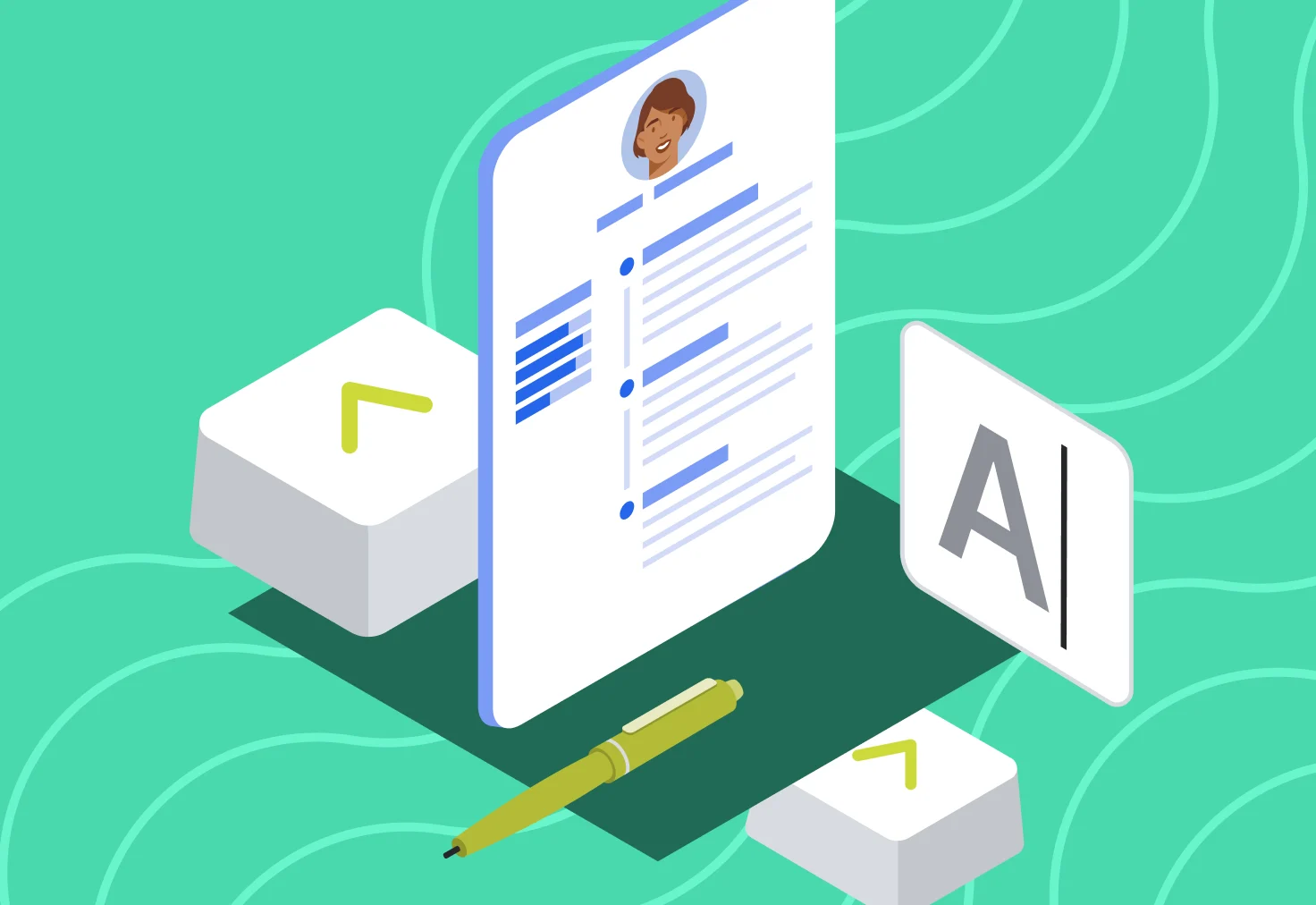Civil engineering is a challenging and fulfilling vocation, and you can’t wait to kick off your career or advance it further. But before you can start doing the job you love, there’s one project that requires your undivided attention: writing a civil engineer resume.
Fortunately, you’re already familiar with complex problems, meaning you have a head start. So, whether you just need a couple of tips to fine-tune your document or you want a comprehensive guide from start to finish, we've got you covered.
We’ve prepared a professional manual to help you create a civil engineering resume that will get you that job, so let’s get started!
Key Takeaways
Pick between a chronological, functional, and combination resume format, as these are the most commonly used ones.
Optional sections are incredibly useful, but only add them after you’ve included all the mandatory ones.
When writing a work history section, focus on achievements and results over responsibilities.
Relevant coursework and certifications go a long way toward making your education more prominent.
What is the Right Format to Use for a Civil Engineer Resume?

Before we get into the nitty-gritty, it’s essential to understand one of the overarching principles of resume creation: a resume presentation is just as important as its contents.
You want to convey as much information as possible as concisely as possible (usually on one page). To do that, you need a combination of a resume format and a resume layout.
The three formats that are most commonly used to arrange the information on a resume are:
Common Resume Formats
Chronological, which is used by the majority of candidates because it highlights your latest and most important achievements while also working well with the ATS.
Functional, which is strong at compensating for any lack of professional experience since it focuses on skills.
Combination, which is perfect for industry veterans who want to showcase their skills but also back them up with impressive workplace accomplishments.
Resume Layout

A resume layout represents the visual aspect of your document. You should use it in tandem with a specific resume format to create a neat and easy-to-read civil engineer resume.
Consider the following tips if you want to give recruiters a lot of useful information quickly and easily:
Resume Layout Tips
Margins and white space make different sections distinct. You can start with 1-inch margins and adjust from there depending on the contents of your resume.
It’s highly recommended to choose an appropriate font for your resume that looks clean and legible, such as Arial, Calibri, or Helvetica.
Having a 10–12 pt font size for text and at least a 14–16 pt size for section headers will create a hierarchy and further enrich your resume.
What Sections Should a Civil Engineer Resume Contain?
The resume sections fall into two distinct categories:
Mandatory Sections
Mandatory sections make up the core of your document, and it’s imperative to feature all of them on your civil engineer resume. These include:
Contact information
Resume objective/summary
Work experience
Education
Skills
Optional Sections
Optional sections should only be included after you’ve listed all the required ones. The following ones can add immense value to your resume:
Certifications & courses
Languages
And if you don’t want to keep track of what’s necessary and what isn’t, you can always use our resume builder. It comes with professional presets and intuitive commands that allow you to change everything from a font to a whole layout with one click. Start with a ready-made civil engineer resume template and create a perfect job application in a breeze!
You can readily fill in the blanks with your own information without thinking about all the sections and worrying that you might forget to include something important. Not to mention that the whole process can be done in minutes, which is not possible when you make a civil engineer resume from scratch!
Civil Engineer Resume Template
Name and Surname
Phone number: 000-000-0000 | Email: namesurname@gmail.com | Location: City, State
[Adjective] [your job title] with [years of experience, if applicable] in [your area of expertise, if applicable] looking for a [position] job at [company name]. Eager to apply [relevant skills] gained through [work/volunteer/other experience] to help [company name] [mention what you can do for the company].
Work Experience
Most Recent/Current Job Title Company City, State [Start date] — [End date]
For recent jobs, use 5-6 bullet points to list your top achievements and responsibilities
Use action verbs to make your responsibilities and achievements stand out
Add numbers to quantify your achievements
Previous Job Title Company City, State [Start date] — [End date]
For recent jobs, use 5-6 bullet points to list your top achievements and responsibilities
Use action verbs to make your responsibilities and achievements stand out
Add numbers to quantify your achievements
Oldest Job Title Company City, State [Start date] — [End date]
For older jobs, use 2-3 bullet points to list your top achievements and responsibilities
Use action verbs to make your responsibilities and achievements stand out
Add numbers to quantify your achievements
Education
[Degree] in [Major] [University/college name] [Start date] - [Graduation date]
Skills
Soft Skills
Skill #1
Skill #2
Skill #3
Skill #4
Skill #5
Hard Skills
Skill #1
Skill #2
Skill #3
Skill #4
Skill #5
Additional Sections
Add any relevant additional sections (languages, licenses, publications, hobbies, etc.)
Resume templates
Resume templates that are designed to help you win a jobCivil Engineer Resume Contact Information
Imagine you built a captivating civil engineer resume that wooed the recruiter, but you forgot to include your contact information, and now they can’t get back to you. To make sure that doesn’t happen, add your personal details at the top of your resume, in the header, and ensure the section contains the following:
What to Incude
Your name
Professional title
Phone number
Email address
Those are the essential parts of this section, but you can add two more items to the list to make it even better:
Your LinkedIn profile
Personal website/Portfolio
LinkedIn is a social networking website used specifically in the business world. On the other hand, a portfolio or personal website gives recruiters easy access to your previous work, so make sure you fill it with your notable accomplishments before including it in your resume.
Now let’s see all this in an example:
Correct Example
Karl Reese
Civil Engineer
+ 608 386 9438
karlreese@example.com
linkedin.com/in/karlreese99
karlportfolio.com
Here are a few final tips to help you get this section right:
Contact Information Section Tips
Ensure no typing errors.
Use a professional job title and email address.
You generally shouldn’t add your mailing address unless you’re applying for a position abroad or the job posting asks for it specifically.
Making any links in your contact information clickable shows attention to detail and makes recruiters’ job easier.
Civil Engineer Resume Objective or Summary
Hours of hard work perfecting your civil engineer resume won’t do much unless you hook recruiters into checking it out. To do that, write a catchy introductory paragraph in the form of a resume objective or summary.
A civil engineer resume objective emphasizes skills, and it’s perfect for entry-level candidates. On the other hand, if you’re experienced in the field, you can show that with a couple of prominent achievements included in a resume summary.
Civil Engineer Resume Objective

Consider the following tips if you want to write a resume objective that will get the attention of hiring managers, even if you are just starting out in your career:
Resume Objective Tips
Emphasize a couple of your key skills relevant to the position you’re applying for.
Feel free to mention any internships, volunteer work, freelance projects, etc.
Display drive and ambition by talking about your career goals and your desire to work specifically with the company you’re applying to.
Let’s put that into practice and see an example:
Correct Example
“Hard-working civil engineer graduate, proficient in AutoCAD, Revit, and ETABS. Worked as an intern under mentorship on 3 government roadway projects, assisting 5 senior engineers. Looking to leverage my design, analytics, and project management skills at [your company].”
And here’s how not to write a resume objective:
Incorrect Example
“Civil engineer graduate looking for a junior position. Able to use relevant software. Looking to improve my skills through real-world projects.”
The first candidate clearly left much more valuable info in their objective.
Civil Engineer Resume Summary

A good civil engineer resume summary will show that you’re a seasoned professional right off the bat. Impress recruiters with some of your most remarkable workplace accomplishments, and they’ll want to see more.
Here’s how:
Correct Example
“Licensed civil engineer with 7+ years of experience in early works, earthworks, and concrete works. ICE and CIOB member with impeccable problem-solving skills, able to work independently and lead teams for complex projects. Notable achievements include delivering 9 projects on time and 10% under budget. Seeking to join your company and take on large-scale projects.”
For comparison, here’s an example of a poorly written resume summary:
Incorrect Example
“Experienced civil engineer who worked on all kinds of projects looking to advance career and tackle challenging projects at your company.”
This summary lacks any concrete information. It’s so vague that it might as well have been written by an entry-level candidate who has no professional achievements to showcase.
Civil Engineer Resume Work Experience

In most cases, a work experience section is the bread and butter of a civil engineer resume. Write this part well, and you’ll likely have an interview lined up in no time. Let’s see how to do that.
General Tips
Before we get to the details, let’s start with the basics to see what information the work experience section needs to convey. In general, when they are checking out your professional history, recruiters are looking for the following:
Your job title
The company’s name
Dates of employment
Responsibilities within the role and results achieved
The first major step towards making an impeccable work experience section is to focus on results and achievements over responsibilities. It’s alright to mention what your job consisted of, but you should highlight what you accomplished and what that brought to the employer you worked for.
To do that, you should utilize bulleted lists, as they convey a lot of information in a brief and concise manner.
Since civil engineering is all about math and physics, it’s beneficial to add exact numbers in these bulleted lists next to the relevant achievements. That allows you to quantify the results and show precisely what you did.
Lastly, you can make the whole section stand out by including memorable action verbs and power words. Don’t go for overused terms present in any resume out there. For example, the next time you want to say that you “created” something, go with “engineered” or “devised” instead.
No Civil Engineering Experience

Crafting a civil engineer resume with no experience might look like a challenging endeavor. You want to showcase your skills and potential, but you lack the professional experience to back them all up. Luckily, there are alternatives to it that work just as well for junior and entry-level applicants.
You can focus on your technical skills and showcase proficiency in CAD software and relevant applications. That way, you’ll show your potential employers that you have the ability to do helpful office work while learning and striving towards taking on more challenging projects. One of the best ways to do that is to leverage internships, freelancing, volunteer work, projects, etc.
Let’s see an example:
No Civil Engineering Experience Example
Work Experience
Civil Engineer Intern
Klopp Madison, WI
February 2022–June 2022
Used Autodesk Revit and 3DS Max to create 5 structural models and prepare them for client presentations.
Performed technical drawing in AutoCAD based on company surveys.
Worked on a construction project with a $1.5 million budget under a mentor’s supervision.
Experienced Civil Engineer
Experienced civil engineers should focus on quality over quantity. Instead of listing every minor accomplishment—or even every previous job—you ever had, go with those that will have the biggest impact on recruiters.
Add 3–5 highly relevant and imposing accomplishments for each previous job that will show why you are a senior in the field.
Let’s see that in an example:
Experienced Civil Engineer Example
Work Experience
Civil Engineer
Pitt Engineering Madison, WI
August 2017–Current
Oversaw the entire construction process of a 12-floor residential building in Madison.
Supervised 25 projects ranging from in-house endeavors to external contractors’ work.
Managed the onboarding process for 4 new employees and trained them to take on challenging projects during the company’s expansion.
Civil Engineer Resume Education Section

While it’s technically possible to advance in the field of civil engineering without a degree, the progress is slow, and there are plenty of drawbacks. That’s why you should include your academic history and relevant accomplishments right after your work experience.
The best way to do that is to list:
Education Mandatory Details
Your degree
College name and location
Years of attendance
You can make your education section more prominent by adding optional achievements similar to the ones in your professional history segment. Anything from a GPA of 3.5 or above to extracurricular activities, relevant coursework, exchange programs, and more is considered valuable information.
Here’s an example:
Correct Example
Education
Bachelor of Science in Civil Engineering
King’s College, Pittsburgh, PA
2013–2017
Honors: Cum Laude
GPA: 3.7
If you haven’t graduated yet but the date is scheduled, include it and put “expected” next to it. Even if you’re in the middle of your studies, you should still add your degree—you can simply omit the graduation date and put “current” instead.
Civil Engineer Resume Skills

To perform well in such a challenging field as civil engineering, you need a certain set of unique skills. There are two rather different types of skills, and you should present both of them appropriately for optimal chances of success.
First up, we have hard skills. These are the ones for which you went through formal education and have relevant degrees, diplomas, and certificates to show for them. Hard skills are narrowly focused and specific to the field of civil engineering, and recruiters will look for them first on your resume.
On the other end, there are soft skills, which are more about personal traits and abilities acquired through life experience. There are no licenses for soft skills, and they are much more difficult for recruiters to verify than hard skills, but they are nevertheless a crucial part of your resume.
When adding skills to your civil engineer resume, you should list hard skills and soft skills separately. Focus more on the former and only add a select few highly sought-after soft skills afterward.
Hard Skills
Here are some valuable hard skills you could add to your civil engineer resume:
Math
Physics
AutoCAD
Revit
Civil 3D
Construction Standards
Project Management
Project Specifications
Structural Analysis
Structural Engineering
Soft Skills
Recruiters are always looking for some of these soft skills on resumes:
Problem-solving
Time management
Organization
Critical thinking
Creativity
Flexibility
Teamwork
Communication
Interpersonal skills
Civil Engineer Resume Optional Sections
If you want to add more value to your civil engineer resume, you can upgrade it with optional sections to further stand out in the eyes of recruiters. Keep reading to find out how.
Certifications & Courses
This section is all about showing that you went above and beyond in your academic career to become a true expert.
Having certifications means that you possess highly focused knowledge in a particular area. They increase your credibility and allow you to do specific work that some other civil engineers might not be able to do. List them whenever they are relevant to the position you’re applying for.
Some examples of these certifications include:
Examples of Certifications
Certified Floodplain Manager (CFM)
Construction Manager (CCM)
Structural Engineer (SE)
Languages
While the language section is optional and you should only include it if you have some room left, some job ads might make it a requirement. In such cases, it becomes a must-have. When adding this section to your resume, list languages based on skill levels, starting with the highest one.
Should You Submit a Cover Letter With Your Civil Engineer Resume?

Cover letter templates
Create a cover letter by filling in a free template and sharing it for freeA cover letter is an indispensable addition to your resume, so you must make sure to write one that is tailored specifically to the position you’re applying for.
To do that, you should personally address the recruiter and use no more than 5 paragraphs to highlight your key skills and achievements that describe why you’re the perfect candidate for the job.
Expert Tips for Creating a Civil Engineer Resume
Your profession often revolves around small tweaks and adjustments, so you know their importance. With these expert tips, you'll be able to tune up your civil engineer resume so that it can reach its full potential:
If you’re adding multiple previous jobs, degrees, or accomplishments, list them in reverse-chronological order for the biggest impact.
You should keep mentioning your skills throughout your resume. In addition to listing them in a separate section, highlight the key ones in your objective/summary and work experience. By linking them to relevant achievements, you can prove to recruiters that you have them.
Your contact information, professional title, job titles, and skills all act as keywords for the ATS, so make sure you add them properly (e.g., no witty titles like “Engineering Guru”).
Closing Thoughts
If you follow all of the steps on how to write a resume, you'll have a civil engineer resume that looks professional and gets people's attention. Of course, you always have the option of using our resume builder to make it quicker. In any case, brush up on your conversational skills because the interview might be right around the corner!
Related Articles
Architect Resume Example & Writing Guide Architect Cover Letter & Writing Guide Engineer Cover Letter & Writing Guide


